If democratic electorates agree to go on absorbing the costs of supporting Ukraine, it will be because they have been persuaded, not just that the Ukrainian cause is just but also that Ukraine fights for them, argues John Lloyd, a contributing editor at the Financial Times and co-founder of the Reuters Institute for the Study of Journalism:
Zelensky’s argument is a serious one—it holds that a determination to thwart Russia’s invasion is, for the West’s democracies, a meaningful expression of a belief in the value of democracy itself, he writes for Quillette. One can counter the realists’ consequentialist arguments about the dangers of escalation with a consequentialist argument about the dangers of appeasement. But Zelensky also believes that there is a categorical imperative at stake here: observation of international rules and borders are worth defending for their own sakes.
As Timothy Snyder has put it, “a Russian victory would strengthen fascists and other tyrants … this war, in other words, is about establishing principles for the twenty-first century. It is about policies of mass death and about the meaning of life in politics. It is about the possibility of a democratic future.”
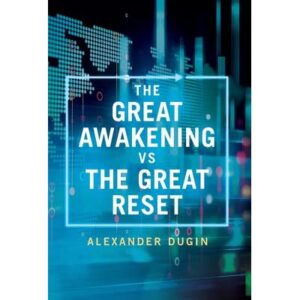 In addition to propaganda and disinformation campaigns by the Kremlin, an intellectual deformation of the Russian elite by the Manichean ideas of such theorists as Lev Gumilyov and Aleksandr Dugin is partly responsible for Russia’s increasing secession from Europe, and became one of the determinants of Russia’s attack on Ukraine in 2014, notes Andreas Umland, a professor at the National University of Kyiv-Mohyla Academy.
In addition to propaganda and disinformation campaigns by the Kremlin, an intellectual deformation of the Russian elite by the Manichean ideas of such theorists as Lev Gumilyov and Aleksandr Dugin is partly responsible for Russia’s increasing secession from Europe, and became one of the determinants of Russia’s attack on Ukraine in 2014, notes Andreas Umland, a professor at the National University of Kyiv-Mohyla Academy.
Large portions of the Russian state bureaucracy, professoriate, artistic scene, cultural realm, pedagogical class, and civil society endorse at least parts of the anti-Western course and attack on Ukraine too. This phenomenon is reminiscent of the Weimar Republic of inter-war Germany where democracy, Westernization, and republicanism were likewise rejected and undermined by many academics and intellectuals, he writes for World Affairs:
A particularly dark aspect of Russia’s war of annihilation against Ukraine and political warfare against the West is its broad support not only among ordinary Russians but also among the country’s elites…. The new distortion of the relationship between social science and Russian society after the end of the USSR had already begun before the interventions of Putin’s political technologists in public discourse started in the summer of 1999. The popularity of Fomenko, Gumilyov, Dugin, and a host of similar pseudo-historians and para-scientists was therefore not only a symptom of the rise of a new post-Soviet anti-liberalism….. They became important determinants of Russia’s turning away from Europe in the new millennium.
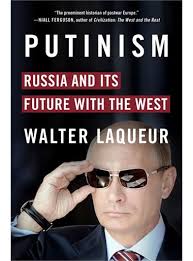 A recovery of Russian society will require not only a change of political regime but also a rebirth of the country’s social and historical sciences as well as its humanist intellectual discourse, Umland concludes.
A recovery of Russian society will require not only a change of political regime but also a rebirth of the country’s social and historical sciences as well as its humanist intellectual discourse, Umland concludes.
The socioeconomic consequences of the war will challenge Ukraine’s institutions, even though they have proven robust throughout the conflict. To ensure transparency and accountability in post-war reconstruction, Washington must help the government keep its foot on the gas with critical anti-corruption reforms and strengthening the rule of law, adds Daniel Twining, head of the International Republican Institute (IRI).
The worst possible outcome for Vladimir Putin would be for Ukraine not only to emerge victorious, but even more resolutely committed to pursuing a democratic, pro-Western future. If that happens, the return on America’s investment in Ukraine’s democracy would be incalculable, he writes for POLITICO.
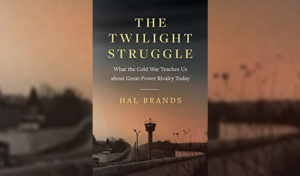 The war in Ukraine put that country on the front lines of the great struggle of this century: the contest between democracy and authoritarianism. But if the war surprised many observers, the position in which Ukraine finds itself is remarkably familiar, adds Hal Brands, a senior fellow at the American Enterprise Institute, and Distinguished Professor of Global Affairs at the Johns Hopkins School of Advanced International Studies (SAIS). With only modest exaggeration, we could call the past 100 years or so the Ukrainian Century, for that country has figured centrally in every great global clash of the modern era.
The war in Ukraine put that country on the front lines of the great struggle of this century: the contest between democracy and authoritarianism. But if the war surprised many observers, the position in which Ukraine finds itself is remarkably familiar, adds Hal Brands, a senior fellow at the American Enterprise Institute, and Distinguished Professor of Global Affairs at the Johns Hopkins School of Advanced International Studies (SAIS). With only modest exaggeration, we could call the past 100 years or so the Ukrainian Century, for that country has figured centrally in every great global clash of the modern era.
A Ukrainian victory would make one the world’s leading tyrants look pathetic rather than preeminent, he writes. It could create tension in Russia’s partnership with China by forcing an enfeebled Putin to beg for assistance that Beijing would be reluctant to give. It would produce a revitalized Western community with a commanding position against a dangerous but degraded Russia. Once again, a war involving Ukraine will shape the contours of world order.
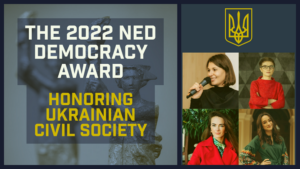 One would expect, as did I, that after nine months of war, the Ukrainian nation would be exhausted, weary and ready to give in. This was by no means the case. Civil society initiatives, unprecedented for most countries, have been borne out of the war effort, Joshua Kroeker writes for New Eastern Europe:
One would expect, as did I, that after nine months of war, the Ukrainian nation would be exhausted, weary and ready to give in. This was by no means the case. Civil society initiatives, unprecedented for most countries, have been borne out of the war effort, Joshua Kroeker writes for New Eastern Europe:
Ukrainian youth, rather than having fled the country, work to deliver Christmas presents to children in regions close to the front line. Old women, having lived through decades of Soviet oppression and geopolitical change, knit socks and mittens for soldiers and small armbands to raise funds for the Ukrainian Armed Forces. In Lviv’s main square, a small stand in between two buildings is manned day and night, as civilians collect donations in exchange for trinkets that look straight out of a flea market.
It may seem axiomatic now, but for Ukrainians, Russia will never be able to win this war, Kroeker adds. This is because they will never be able to win over the hearts and minds of Ukraine.
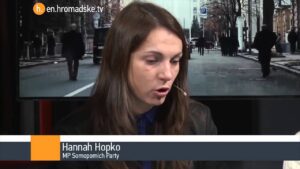 Civil society initiative has made Ukraine’s self-defense possible — and its ultimate victory all but certain, NEWSWEEK reports.
Civil society initiative has made Ukraine’s self-defense possible — and its ultimate victory all but certain, NEWSWEEK reports.
“This isn’t a war just between the armies, it’s a war between the entire societies,” said entrepreneur Oleksandr Yakovenko. “There is no civil society in Russia, and Russia’s leaders made the mistake of believing that this meant there was no civil society in Ukraine.”
Taiwan has pledged an additional US$2 million to fund emergency electricity generation in three Ukrainian cities hard hit by Russia’s invasion to help them survive the winter and overcome power outages due to air strikes on critical infrastructure, say reports.
The donation was confirmed with the virtual signing of a memorandum of understanding (MOU) on Wednesday by Taiwan Foreign Minister Joseph Wu, Kharkiv Mayor Ihor Terekhov, Mykolaiv Mayor Oleksandr Syenkevych, and Hanna Hopko (above), head of Ukrainian NGO ANTS Network, a group designated by Ukraine to do humanitarian work in Kherson.
Ми живемо в історичну епоху – час України настав! Маємо стати прикладом не лише змін всередині країни, але і солідарності з іншими народами. З народом Білорусі, аншлюс якої Москва готує на очах у байдужої Європи, і якого ми не маємо допустити. З корінними народами самої РФ. pic.twitter.com/vUFa8oMaFU
— Hanna Hopko (@HopkoHanna) February 19, 2019







